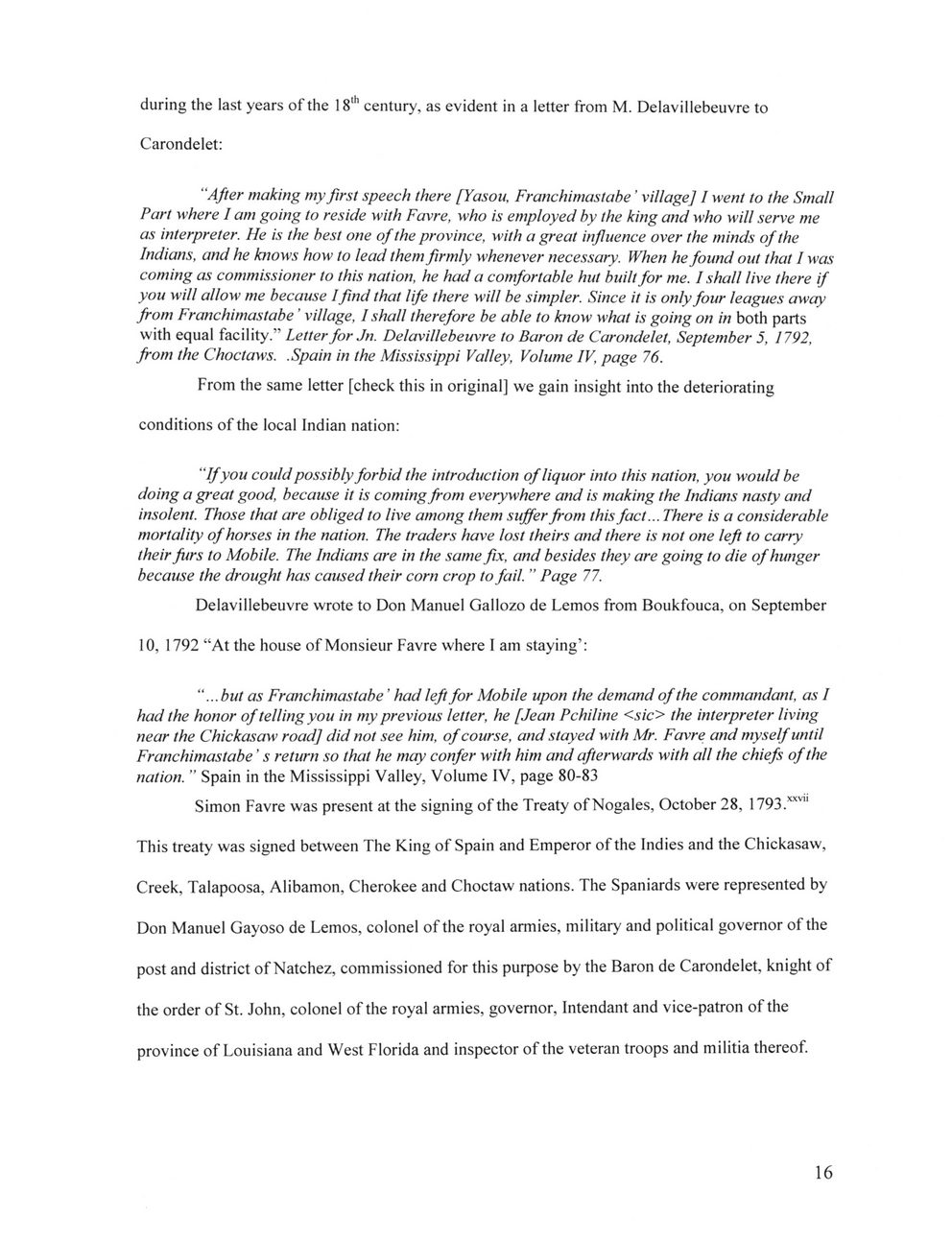This text was obtained via automated optical character recognition.
It has not been edited and may therefore contain several errors.
during the last years of the 18th century, as evident in a letter from M. Delavillebeuvre to Carondelet: ?After making my first speech there [Yasou, Franchimastabe ? village] I went to the Small Part where I am going to reside with Favre, who is employed by the king and who will serve me as interpreter. He is the best one of the province, with a great influence over the minds of the Indians, and he blows how to lead them firmly whenever necessary. When he found out that I was coming as commissioner to this nation, he had a comfortable hut built for me. I shall live there if you will allow me because I find that life there will be simpler. Since it is only four leagues away from Franchimastabe ? village, I shall therefore be able to know what is going on in both parts with equal facility.? Letter for Jn. Delavillebeuvre to Baron de Carondelet, September 5, 1792, from the Choctaws. .Spain in the Mississippi Valley, Volume IV, page 76. From the same letter [check this in original] we gain insight into the deteriorating conditions of the local Indian nation: ?Ifyou could possibly forbid the introduction of liquor into this nation, you would be doing a great good, because it is coming from everywhere and is making the Indians nasty and insolent. Those that are obliged to live among them suffer from this fact... There is a considerable mortality of horses in the nation. The traders have lost theirs and there is not one left to carry their furs to Mobile. The Indians are in the same fix, and besides they are going to die of hunger because the drought has caused their corn crop to fail. ? Page 77. Delavillebeuvre wrote to Don Manuel Gallozo de Lemos from Boukfouca, on September 10, 1792 ?At the house of Monsieur Favre where I am staying?: ? ...but as Franchimastabe ? had left for Mobile upon the demand of the commandant, as I had the honor of telling you in my previous letter, he [Jean Pchiline <sic> the interpreter living near the Chickasaw road] did not see him, of course, and stayed with Mr. Favre and myself until Franchimastabe ? s return so that he may confer with him and afterwards with all the chiefs of the nation. ? Spain in the Mississippi Valley, Volume IV, page 80-83 Simon Favre was present at the signing of the Treaty of Nogales, October 28, 1793.xxvn This treaty was signed between The King of Spain and Emperor of the Indies and the Chickasaw, Creek, Talapoosa, Alibamon, Cherokee and Choctaw nations. The Spaniards were represented by Don Manuel Gayoso de Lemos, colonel of the royal armies, military and political governor of the post and district of Natchez, commissioned for this purpose by the Baron de Carondelet, knight of the order of St. John, colonel of the royal armies, governor, Intendant and vice-patron of the province of Louisiana and West Florida and inspector of the veteran troops and militia thereof. 16

Favre The-Favre-Family-in-Hancock-County-16